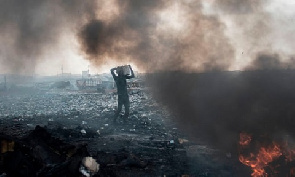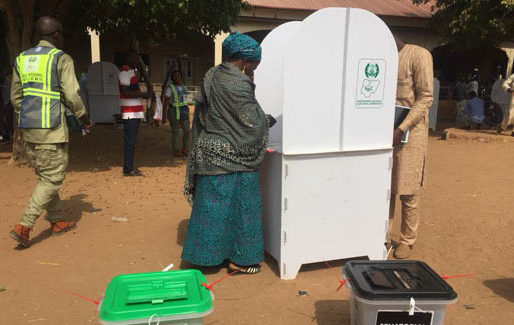Rotten eggs: E-waste from Europe poisons Ghana’s food chain

Some of the most hazardous chemicals on Earth are entering the food chain in Ghana from illegally disposed electronic waste coming from Europe.
According to a new report by two environmental groups tracking the disposal of e-waste, chicken eggs from the Agbogbloshie slum in Ghana’s capital, Accra – where residents break up waste to recover metals – contain dangerous levels of dioxins and polychlorinated biphenyls (PCBs), among other harmful substances.
Researchers for the two groups, Ipen and the Basel Action Network, analysed eggs laid by the free-range chickens that forage in Agbogbloshie, home to an estimated 80,000 people who subsist primarily by retrieving and selling copper cable and other metals from e-waste.
The analysis revealed that an adult eating just a single egg in the Agbogbloshie scrap yard and slum would exceed the European Food Safety Authority limits on chlorinated dioxins 220 times over. Other toxic chemicals were present in similarly worrying concentrations, including PCBs and fire-retardant compounds. Dioxins, in particular, are highly damaging even in small concentrations.
The report has underlined again the problems in regulating the transfer of toxic waste materials from Europe to African countries, including Ghana, Tanzania and Nigeria, leading to calls for tougher hazardous waste regulation enforcement under the current Stockholm Convention.
The analysis of the eggs was carried out by Basel Action Network, which fitted waste from Europe with monitors and tracked it to Ghana and other countries.
Activists have been calling for stricter enforcement of rules governing the transfer of waste containing toxic chemicals, to prevent it ending up in countries without the infrastructure to dispose of it safely.
“Europe needs to contend with its toxic e-waste, rather than routing it to developing countries, such as Ghana, where hazardous chemicals contaminate populations (especially the vulnerable) and the environment, as a result of mishandling and existing indiscriminate disposal practices,” said Sam Adu-Kumi of the Ghana Environmental Protection Agency, in response to the findings.
“African countries should not be used as an e-waste dumping ground any more, as we do not have the technological capacity to deal with waste containing high levels of persistent organic pollutants.”
Jindrich Petrlik, lead author of the report and a member of Ipen’s dioxin, PCBs and waste working group, said: “Dioxins are extremely toxic in very small amounts; there is a concern when these substances are identified in even tenths of pictograms. However, our sampling revealed levels measured in very high quantities, indicating [that] vast amounts of these unregulated, highly toxic chemicals are reaching Africa in e-waste and entering the food chain.”
Source: theguardian.com





